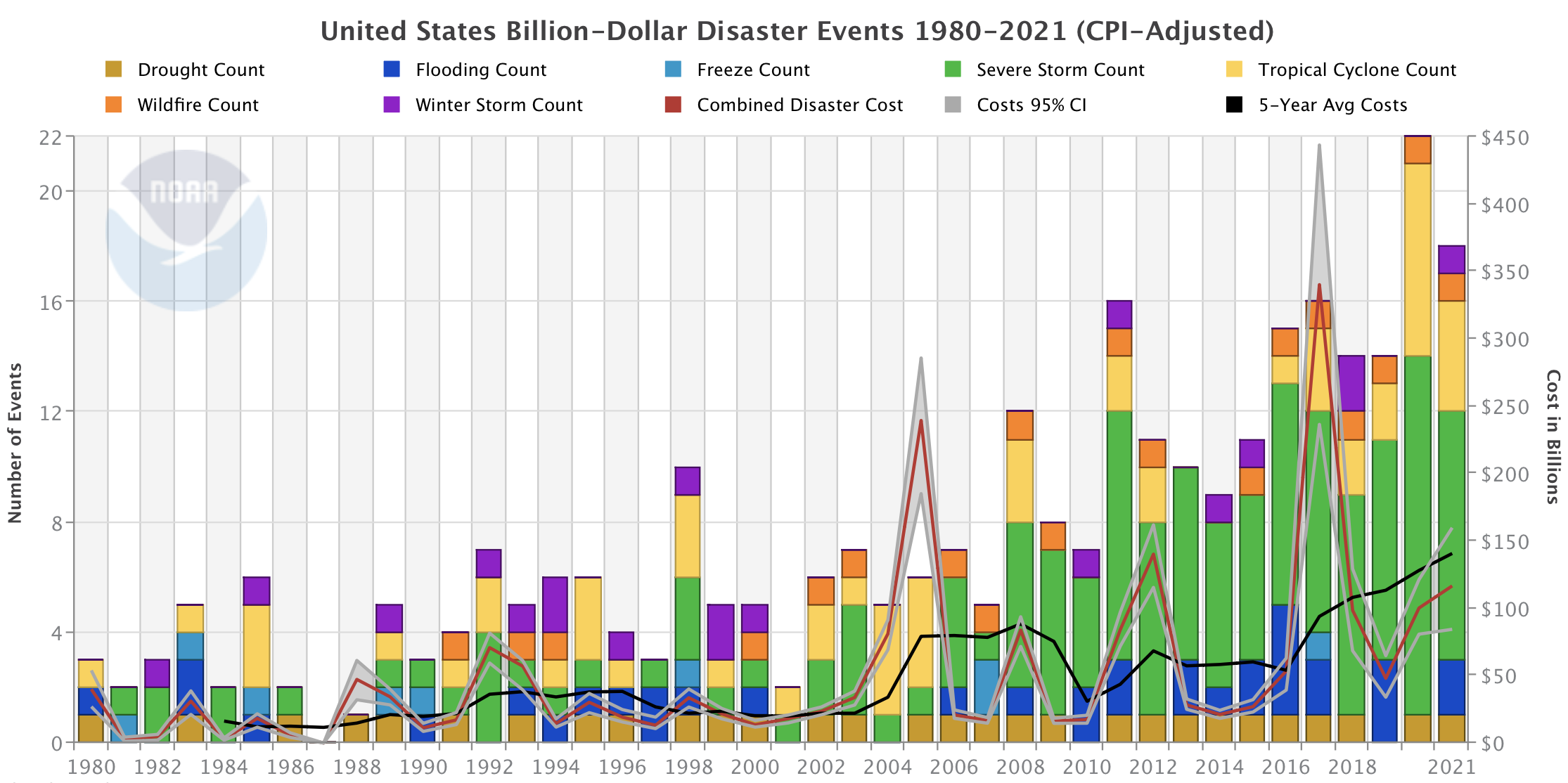The Intergovernmental Panel on Climate Change (IPCC), a United Nations group that synthesizes climate science, issued its latest report in August, 2021. This report reiterates what we’ve known for many decades: human activities, especially burning fossil fuels, are heating the planet. But the report also summarizes recent advances in attribution science, which show how human-caused heating is increasing the frequency and severity of heat waves, droughts, floods, storms, hurricanes, and wildfires.
These natural disasters are causing real harm to people. In the United States, for example, the National Oceanic and Atmospheric Administration has tracked natural disasters since 1980. The following graph, from their 2021 Billion-Dollar Weather and Climate Disasters report, shows the numbers and costs of natural disasters in the United States that caused more than $1 billion in damages (inflation-adjusted to 2021 dollars). The bars in this graph are the numbers of billion-dollar disasters each year. The curves show the annual costs of these disasters (brown, with the 95% confidence intervals shaded in gray) and the five-year moving average of these costs (black).
The striking message of this graph is that natural disasters in the United States are becoming more frequent and severe. In the last five years, these disasters have cost about $640 billion and killed about 4,000 people. While not all of these natural disasters can be attributed to climate change, we now know that human-caused heating is increasing their frequency and severity.
If we don’t act quickly to cut greenhouse gas emissions, we will likely see more, worse natural disasters in the coming decades. According to the IPCC’s report on climate impacts, we should also expect to see more poverty, reduced crop yields, more water scarcity, higher rates of food- and water-borne diseases, and rising seas submerging coastal communities. These factors are likely to drive millions of people from their homes and increase risks of violent conflict. The impacts will disproportionately harm vulnerable people, in both developing and developed countries.
For me, climate action is fundamentally about reducing human suffering: poverty, hunger, thirst, disease, displacement, injury, and death. To reduce that suffering, we can and must slow climate change and prepare for those impacts of climate change that we can no longer avoid.
